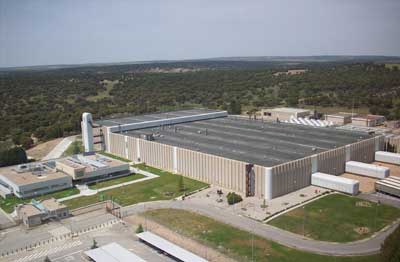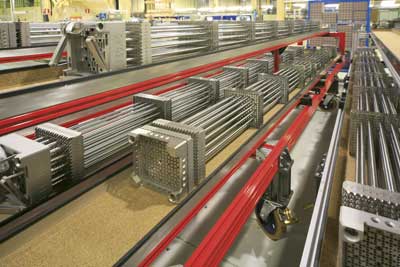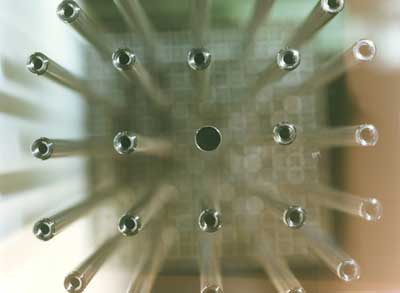
European
Nuclear Society
e-news
Issue 30 Autumn 2010
http://www.euronuclear.org/e-news/e-news-30/enusa.htm

Since 1985, one of the most valuable business assets in the province of Salamanca has been located in a small town called Juzbado, around 30 kilometers from the provincial capital: the nuclear fuel factory of Enusa Industrias Avanzadas, S.A.

Highly-professional and able to undertake complex engineering projects, the factory has the necessary flexibility to understand and respond to market requirements and the know-how and resources needed to produce the first-rate products it demands. Enusa also implements an openly customer-oriented policy. All these contributing factors have helped the Enusa factory to develop major assets that have enabled it to gain a leading position in the complex market within which it operates. It is often said that the hardest thing is not to get there, but rather to stay there. Well, Enusa is currently facing a major challenge – fulfilling its responsibility to respond to its customers’ trust by maintaining the highest standards of quality, reliability and safety both with regards to its operations and to the products and services that it provides.
The European nuclear market is a mature market in which Enusa has succeeded in achieving a privileged position. The first fuel supply contract for the Swiss Leibstadt power plant in 1988 is now part of history, but it represented a one-off approach to the outside world because at the time output from the Juzbado factory was exclusively intended for the national market. Little by little, however, the volume earmarked for exporting grew until exports reached their current level, equivalent to more than 70% of the factory’s total production. The rest is destined for Spanish nuclear power plants.

This access to the European market meant that Enusa had to adapt its operations to conform to a framework of new regulations, requirements and regulatory authorities. Mastering this new framework was decisive in helping the company to develop its competitive capacity with an eye for the future and accomplish significant outcomes, such as the licensing of in-house developed design codes by European regulatory bodies.
In this respect, it should be noted that Enusa allocates 6% of its fuel sales to R&D. This allows it to continuously invest in equipment upgrading or in programmes aimed at developing its manufacturing processes, as well as take part in international nuclear projects in collaboration with licensors, regulatory bodies, customers or other companies with which it has technology-based partnerships.
Enusa’s international vocation was born in the early years of its business activities and today the company supplies fuel to countries such as Finland, Sweden, Germany, Belgium and France (in addition to seven of the eight national reactors), thanks to the current nuclear revival. Enusa is positioning itself in new markets through strategic alliances that are helping it to grow and optimize its resources, whilst at the same securing positions in the emerging markets. The most representative example of this is the Spanish Nuclear Group for China, a partnership of four Spanish nuclear enterprises whose objective is to compete in the difficult Asian market. In this way, by focusing on the emerging markets such as China, Enusa has taken the implementation of its international strategy another step forward.

2010 has been a good year, not only because of the operating figures, but also because it marked a very special occasion for the Enusa factory. The facility has celebrated not only its 25th anniversary but also the fact that, for the fourth year in a row, it set an annual production record, with 326 tU (tons of uranium) produced in 2009. It has thus managed to exceed the figure of 5,000 tU produced since it began operations in 1985 and has now obtained a license for producing 500 tU/year.
This hard working factory will devote its future efforts to maintaining the current level of production and producing between 400 and 500 tons per year. The Enusa factory’s existence for a quarter of a century, coupled with the position that it occupies on the front line of its business sector demonstrate that, although it is a hard road to travel, in the Salamanca town of Juzbado they know how to do things safely and well.
![]()
© European Nuclear Society, 2010